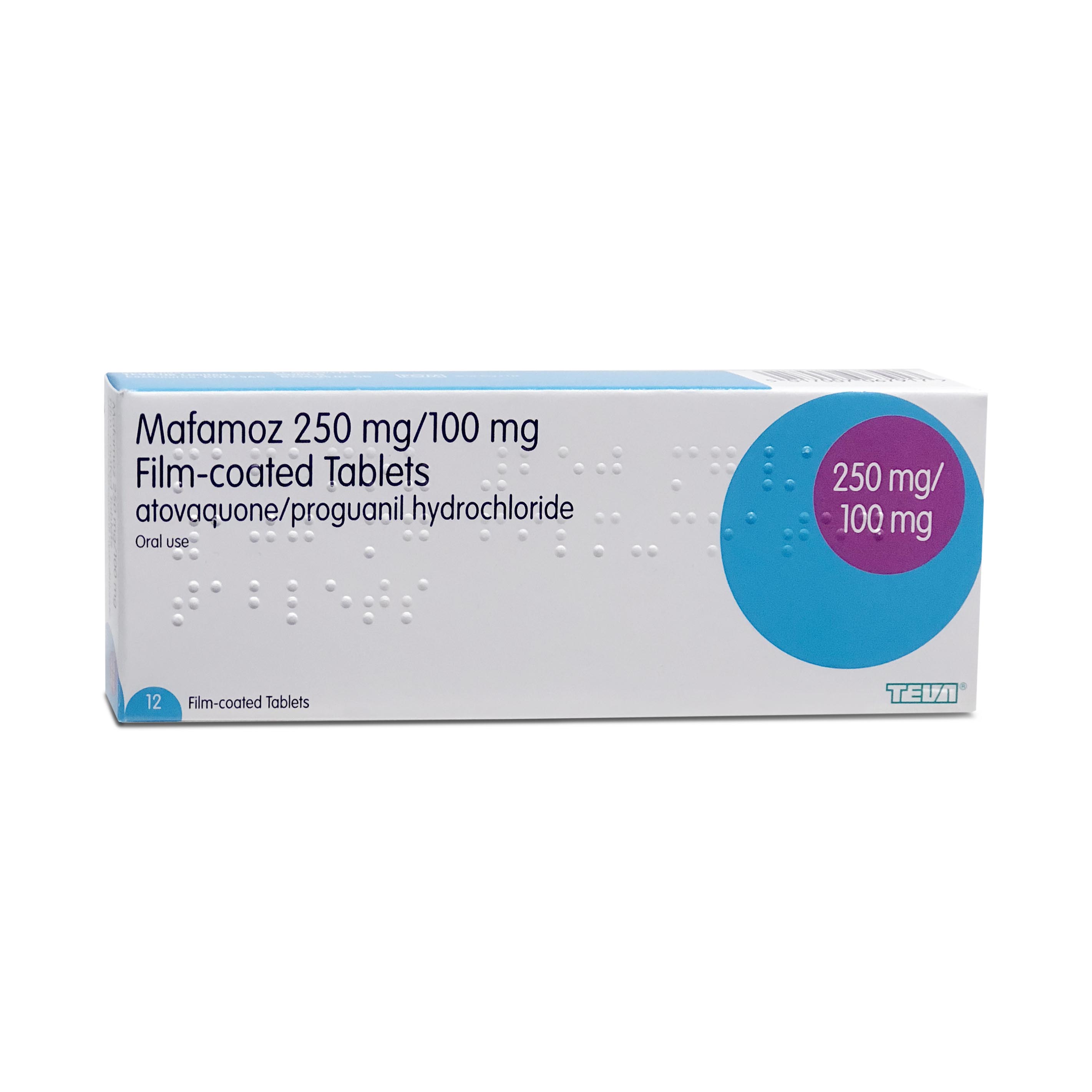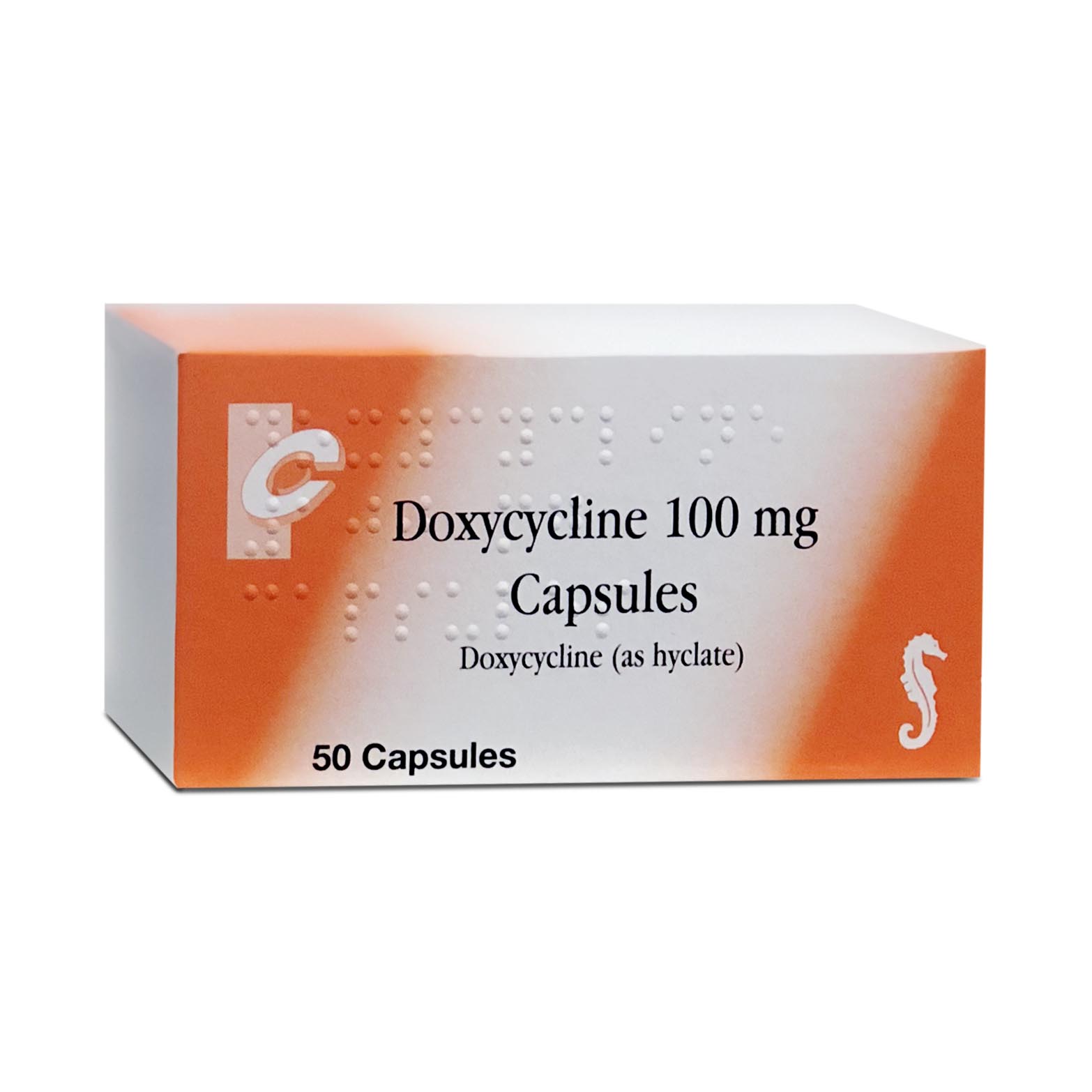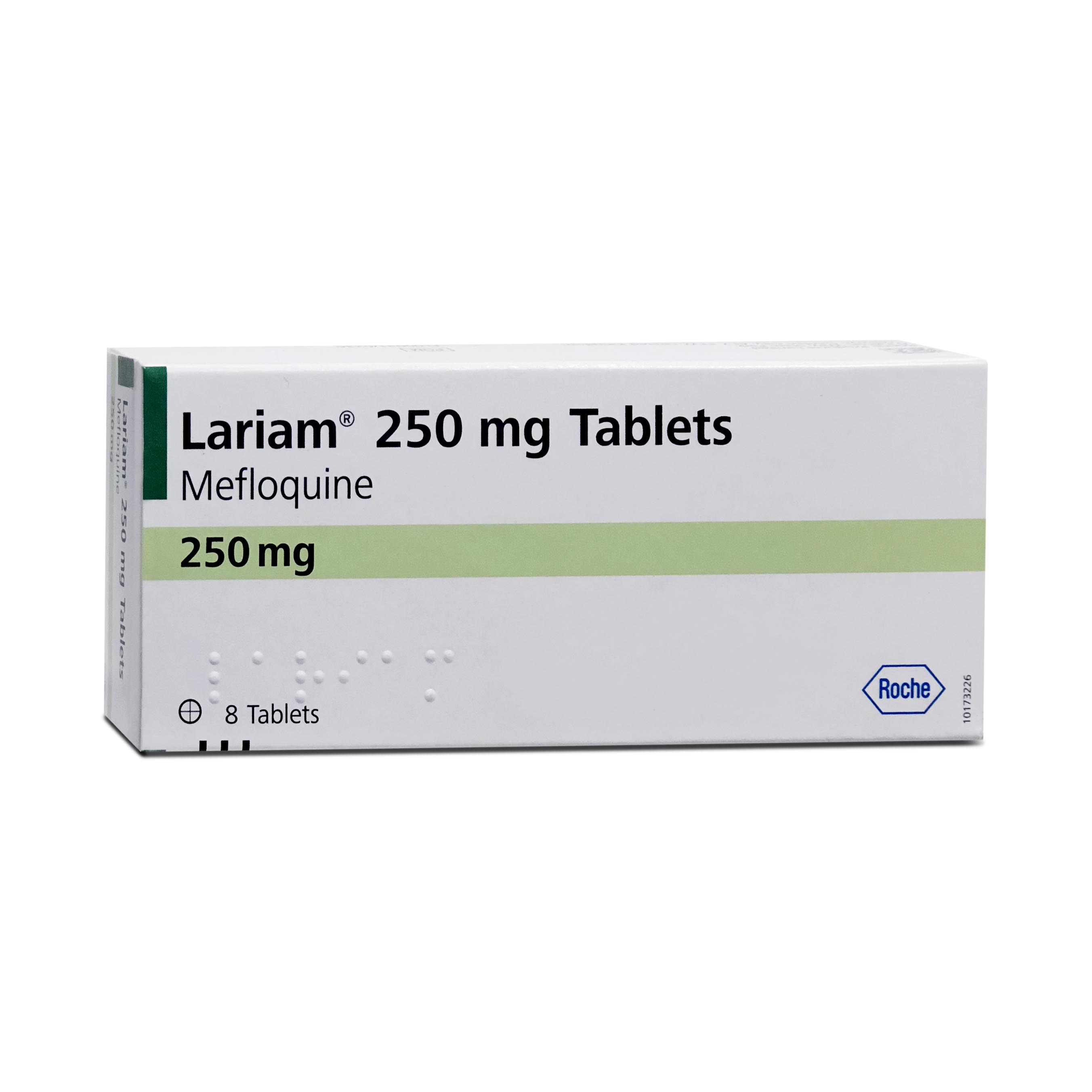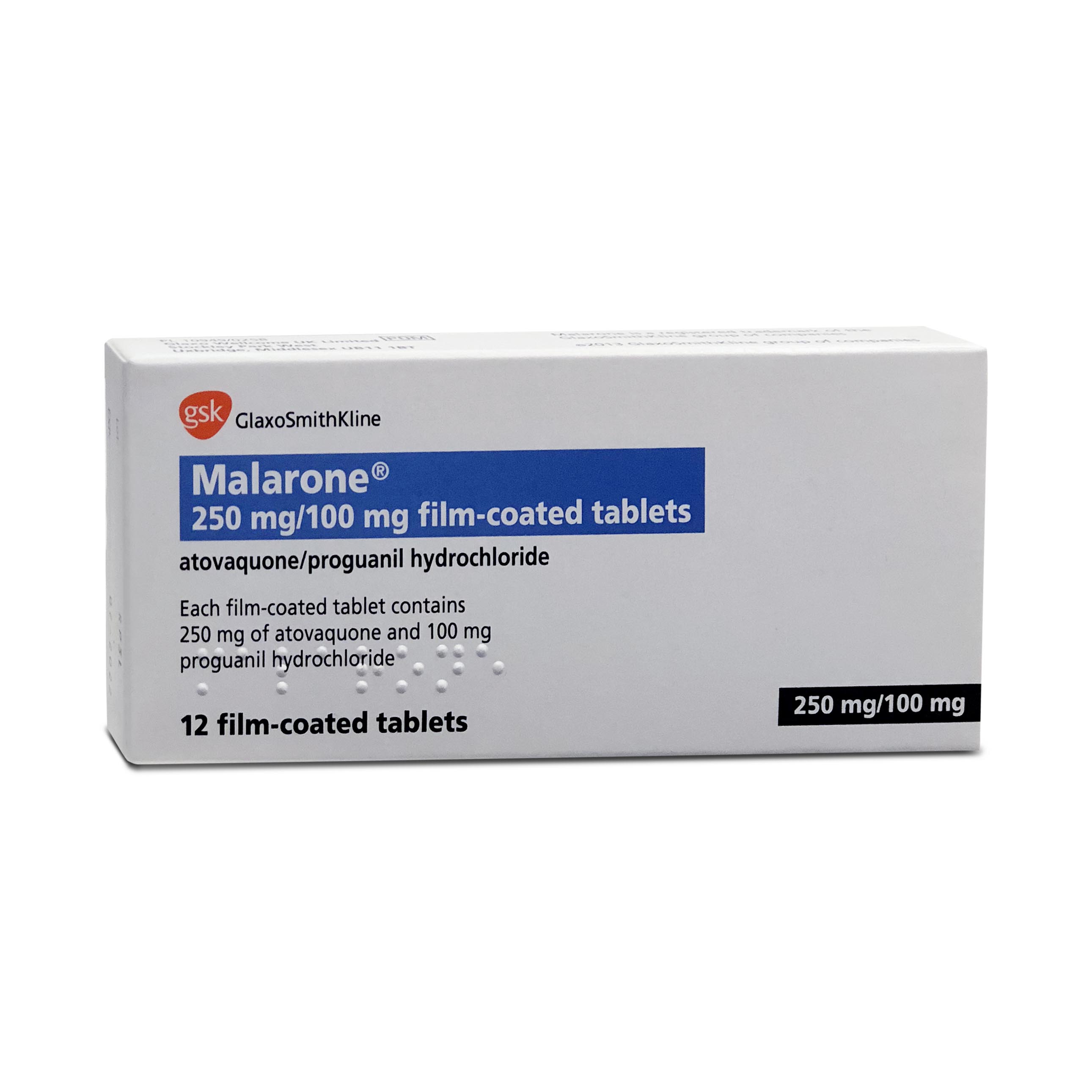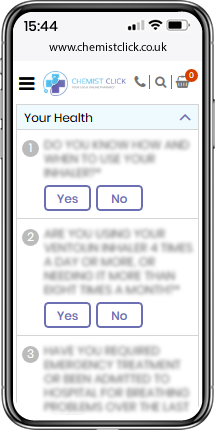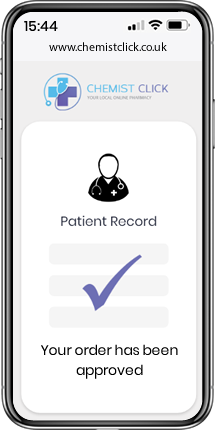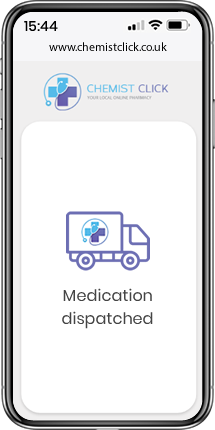Malaria Tablets
Malaria is a serious and sometimes life-threatening blood disease, caused by infected mosquitos. Malaria tablets can help to prevent the contraction of this deadly disease, in parts of the world where malaria is prevalent.
MALARIA TABLETS
Buy Malaria Tablets Online
You can buy malaria tablets online after completing an online consultation, and have your anti-malaria tablets delivered to you the next day.
What is malaria?
Malaria is a serious and sometimes life-threatening blood disease, caused by infected mosquitos. It can cause flu-like symptoms and if you do not treat it promptly, it can reproduce inside your bloodstream and eventually kill you.
How do you get malaria?
Malaria is caused by a specific parasite known as Plasmodium. Plasmodium is transmitted through mosquitos (mainly the ones that bite at night). Once an infected mosquito has bitten a human, the parasites travel to the liver, where they mature. After a few days, the parasites then enter the bloodstream where they multiply and infect red blood cells.
Is malaria dangerous?
It is estimated that 300-500 million people contract malaria every year and around 1 million of those affected die from the disease. It is important to have treatment quickly if you contract malaria, as it can infect red blood cells causing severe anaemia and a reduction in oxygen flow as well as blocking the immune response. Luckily, in most cases, fast treatment will prevent death and taking antimalarials significantly reduce the risks of contracting malaria in the first place.
Can you cure malaria?
If treatment is prompt, you can cure malaria. If you have any symptoms such as high fever, vomiting, diarrhoea, stomach pain or any other symptoms of malaria within one year of your return, you should seek medical advice as soon as possible. If you have malaria, your doctor will start you on medication and it is highly likely that you will make a full recovery. The medicine used in treating malaria is usually the same medication that is used to prevent it, but they are taken at a higher strength. If you caught malaria whilst taking anti malaria tablets, your doctor will prescribe you with medication different to the ones you were taking to prevent it, as the the malaria parasites may have developed resistance. You may also be prescribed a combination of drugs to ensure that the malaria parasites do not develop resistance to treatment.
How can you avoid getting malaria?
If travelling to an area where there is a high risk of malaria, the most effective method of prevention is to take antimalarials. They help to reduce the risk of infection by around 90%. Other methods to reduce the risk of contracting malaria would be to cover up at night, use anti-mosquito repellents and sleep in a mosquito net. Closing windows and using air conditioning also helps to keep mosquitos away.
Do I need to take malaria tablets?
If you are travelling to an area where malaria is prevalent, it is highly recommended to take anti-malaria tablets. The type of tablets you take, depend on the area you are travelling to, so it is important to visit the Fitfortravel website to see which type of antimalarials you require.
Is malaria contagious?
You cannot catch malaria from other people, unless you have had a blood transfusion or an organ donation from someone who has malaria. This is extremely unlikely as donors will have had their blood analysed prior to any procedures.
What are the symptoms of malaria?
Usually, the time taken from being infected to when symptoms begin to appear is around 7-18 days, however, this can vary and it can take up to one year for symptoms to develop.
The symptoms to watch out for are:
- High temperature/fever
- Shaky chills
- Headache
- Nausea
- Vomiting
- Diarrhoea
- Bloody stools
- Abdominal pain
- Muscle pain
- Convulsions
- Coma
When will a person infected with malaria develop symptoms?
Most people will develop symptoms within a month after infection. However, this may be as early as a week, or as late as one year after infection.
Can you die from malaria?
Malaria is one of the world's most deadly diseases. According to Unicef, around 300-600 million people suffer from malaria each year, with over 1 million of them dying from it. Malaria kills red blood cells which are responsible for transporting oxygen around the body. This can lead to a number of complications, but ultimately means that vital organs such as the kidneys and the brain are starved of oxygen, which leads to death. With cerebral malaria, malaria parasites enter the brain causing it to swell, which can lead to complications such as brain damage, seizures, comas and death.
However, the good news is that you can prevent malaria using antimalarials. If caught early, malaria also has a high survival rate with no long-term complications. This is why it is extremely important not to ignore any malaria warning signs within one year of your return.
Can you become immune to malaria?
There isn’t much of an understanding in regards to malaria and immunity, but you can be partially immune to malaria, either through genetics, or acquired immunity from constant exposure. If you have grown up in a country where malaria is present, and left for a significant amount of time (e.g. for work, or to study), you may have lost that immunity and it is recommended to use anti malaria tablets to protect yourself when entering malaria zones.
Can I buy malaria tablets from the country that I am travelling to?
Buying medication abroad poses certain risks. Most of the time, there are no real ways to identify whether medication abroad is genuine or fake. It’s also difficult to tell if the storage facility has passed quality control measures, which can carry a risk to your health. For most tourists, there is also no guarantee that there is a pharmacy within close proximity to where you will be staying, or if there is, it can be difficult to predict whether or not they will have malaria tablets in stock when you arrive. The safest option is to order malaria tablets from a reputable source where you are able to check the validity and credentials of the pharmacy.
What should I do if I am pregnant or breastfeeding?
If you are expecting a child, you are not advised to travel to areas where malaria is present, unless absolutely necessary. This is because malaria is more serious in those that are pregnant, increasing the risk of complications to both the mother and unborn child. Furthermore, anti-malaria tablets are not recommended for those that are pregnant.
For those that are breastfeeding, you will need to speak to your doctor, who will weigh the potential risks against the benefits. It is common for women to stop breastfeeding for a short space of time whilst they are taking malaria tablets, and resume after a certain period when the drug has been eliminated from their system.
Which malaria tablets should I take?
The malaria tablets you should take, depends on where you are travelling to. If you visit the NHS Fit For Travel website and enter your destination, it will provide a list of anti-malaria tablets that are suitable for your destination. All malaria tablets provide protection and do not differ much in terms of success rates. What does differ are the side-effects and the way they are taken.
Atovaquone/Proguanil
This tablet needs to be taken once daily, starting two days before entering the malaria zone, whilst there, and for one week after. This is one of the more popular options as it has the least side-effects out of all the malaria tablets, and only needs to be taken two days before and seven days upon return. It is also available in a generic (unbranded) version, generic Malarone which offers a cheaper alternative to the branded version Malarone. However, these tablets are unsuitable for those that are pregnant or breastfeeding, and also for those with kidney problems. This option is considered to be the best malaria tablet to take, as it has a low side-effect profile in comparison to the rest, and has a short course.
Doxycycline
Doxycycline is popular for those who are travelling for an extended period of time to areas where malaria is prevalent, as it is cost-effective. Like Malarone and generic Malarone, it offers flexibility for last minute travellers as it only needs to be taken two days before departure. However, doxycycline needs to be taken for four weeks after having returned, as opposed to seven days. It also has a higher side-effect profile and can cause stomach irritation and sensitivity to sunlight. Doxycycline is also unsuitable for pregnant women.
Mefloquine (Lariam)
These antimalarial’s only need to be taken once a week, but are the least prescribed due to their side-effects which include hallucinations and stomach irritation. Lariam tablets need to be taken three weeks before travel, and continued weekly for four weeks after having returned. They are not suitable for those with heart problems, epilepsy or mental illness.
Can I give malaria tablets to my children?
Malaria tablets are available for children but in lower doses to the ones that adults take. These need to be prescribed by their doctor, as the strength and dose of tablets are calculated according to their current weight. This it is only possible to purchase tablets for yourself online.
Can I buy antimalarials online for people I am travelling with?
If people you are travelling with require anti-malaria tablets, they would need to fill out an online questionnaire themselves, and checkout from their own account. This is because we need to maintain a medical record for individual patients, and each patient would need to have their own consultation, as your medical status may differ from theirs, which would determine whether or not tablets can be prescribed.
Can I donate blood if I have visited a country where there is malaria?
In most circumstances, you will not be able to give blood for a certain period of time after having returned from a country where malaria is present. This is because there may be a possibility that you are carrying the infection. There may be exceptions to the rule in emergencies, but you will be notified if this is the case.
